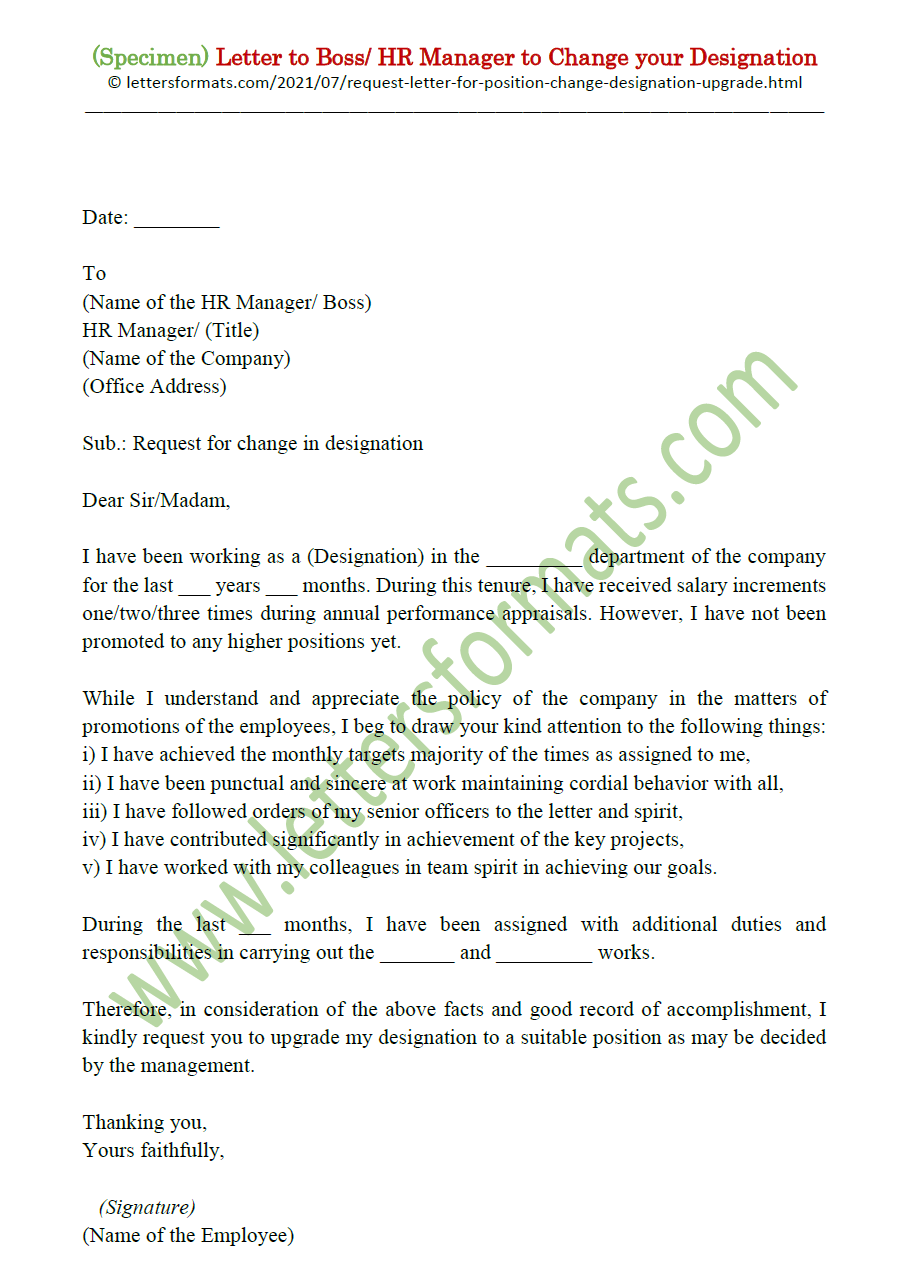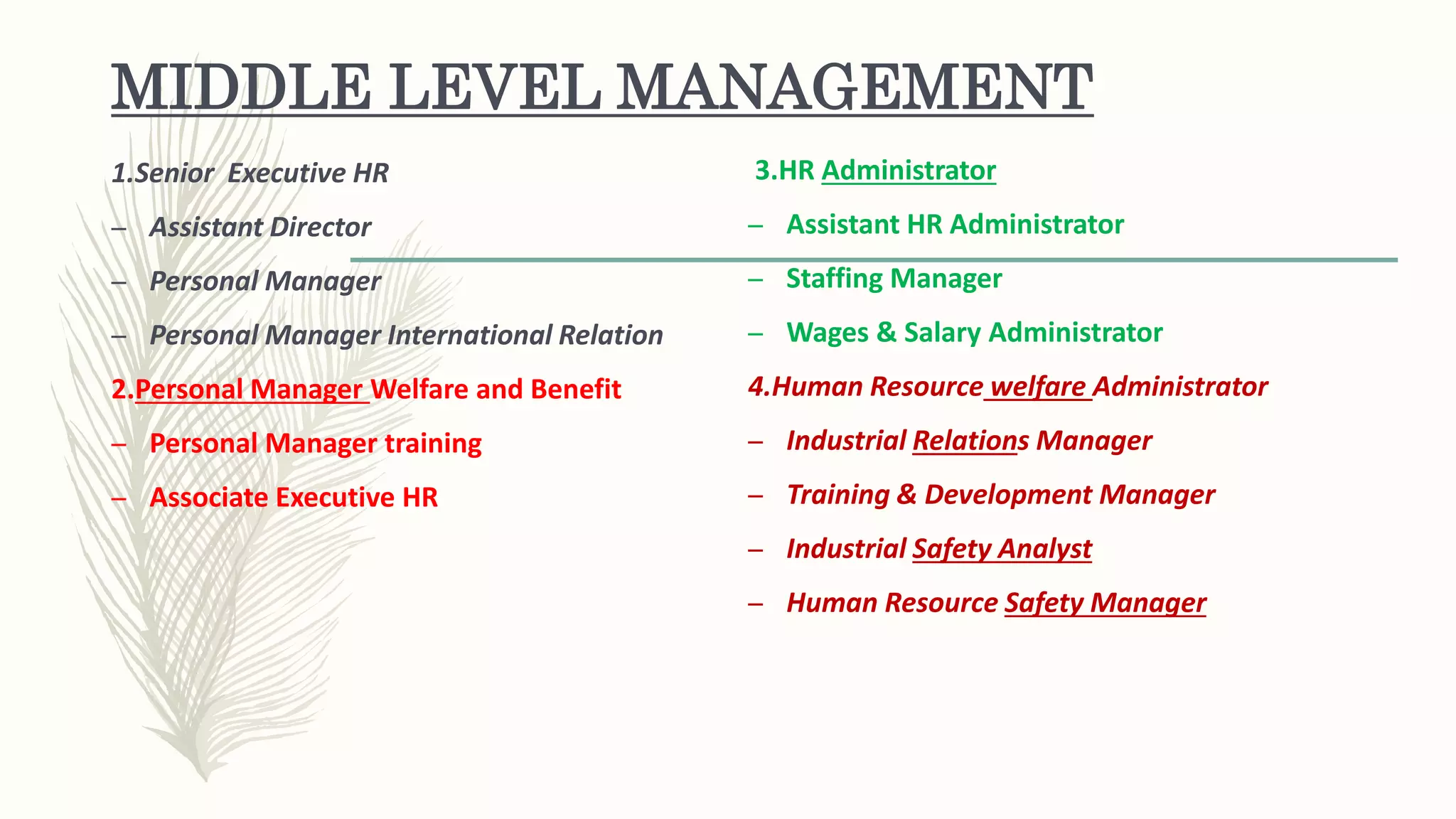Outrageous Info About What Is The Designation HR

Fine Beautiful Tips About Designation Change Request Letter Sample Web
Decoding the HR Designation
1. What Does HR Actually Stand For?
Okay, let's get the obvious out of the way first. HR stands for Human Resources. But that's like saying a car stands for transportation. It's technically correct, but it misses all the cool features, the leather seats, and the fact that it (hopefully) gets you where you need to go. In the professional realm, Human Resources refers to the department responsible for managing everything related to employees within a company or organization. Think of them as the people-wranglers — in the best possible way, of course!
They handle a wide range of tasks, from recruitment and onboarding new team members to administering benefits and ensuring everyone gets paid on time (a crucial job, if you ask me!). They also play a key role in employee development, performance management, and navigating the complexities of labor laws. Basically, if it involves people and work, HR is probably involved somehow.
But here's where it gets interesting: the "designation" part. HR itself is a broad field. Within HR, you'll find a bunch of specialized roles, each with its own specific focus. These specific roles are the true "designations" we're talking about. Think of HR as the umbrella, and these roles are the different types of umbrellas underneath it — some are big golf umbrellas for broad coverage, others are smaller, more specialized ones for specific purposes.
So, when someone says "HR designation," they are usually referring to the specific job title or role that an HR professional holds. This could be anything from HR Generalist to Talent Acquisition Specialist, Compensation and Benefits Manager, or even Employee Relations Specialist. Each designation requires a different skill set and expertise.

Job Titles For Human Resources The 2025 List AIHR
The Wonderful World of HR Designations
2. Exploring Common HR Job Titles
Alright, let's dive into some common HR designations. First up, we have the HR Generalist. These folks are the jacks-of-all-trades (or jills-of-all-trades!) of the HR world. They handle a bit of everything, from recruiting and onboarding to employee relations and performance management. They're the go-to people for employees with general questions or concerns.
Next, we have the Talent Acquisition Specialist (also known as a Recruiter). These are the people who find, attract, and hire new talent for the company. They're like headhunters, but instead of hunting for actual heads (thank goodness!), they're hunting for the best and brightest candidates to fill open positions. They often use LinkedIn like a super-powered, talent-finding sonar.
Then there's the Compensation and Benefits Manager. These number-crunching wizards are responsible for designing and administering employee compensation and benefits programs. They make sure employees are paid fairly and have access to the perks and benefits they need to stay happy and healthy. It's a crucial role in attracting and retaining top talent — because who doesn't love a good benefits package?
And finally, we have the Employee Relations Specialist. These folks are the mediators and conflict resolvers of the HR world. They handle employee disputes, investigate complaints, and work to create a positive and harmonious work environment. They're the unsung heroes who keep the peace and prevent workplace dramas from spiraling out of control.

Why HR Designations Matter
3. The Importance of Defined Roles in HR
So, why do these HR designations matter? Why can't everyone just be called "HR Person" and handle everything? Well, as companies grow and become more complex, the needs of their employees become more specialized. It's like trying to fix a car with only a hammer — you might be able to get some things done, but you're probably going to cause more damage than good.
Having specific HR designations allows companies to tap into specialized expertise. A Talent Acquisition Specialist, for example, will have a deep understanding of recruiting strategies, interviewing techniques, and employment branding. They can focus their energy on finding the best candidates for specific roles, which is far more effective than having a generalist spread themselves thin trying to do everything.
Similarly, a Compensation and Benefits Manager will have a strong grasp of market trends, salary benchmarking, and benefits administration. They can design compensation packages that are competitive and attractive to employees, which is essential for attracting and retaining top talent. Specialization allows for deeper understanding and more impactful results.
Moreover, well-defined HR designations create clear career paths for HR professionals. Someone starting out as an HR Assistant can aspire to become an HR Generalist, then a Compensation and Benefits Manager, and eventually an HR Director. This provides motivation and encourages employees to develop their skills and expertise within a specific area.

How To Write A Request Letter Hr Vrogue.co
Becoming an HR Professional
4. How to Carve Your Own HR Career Path
Interested in pursuing a career in HR? That's fantastic! The good news is there are many different paths you can take to get there. The specific path you choose will depend on your interests, skills, and career goals. For many, it starts with a bachelor's degree in human resources, business administration, or a related field. Some even jump in with degrees in psychology or sociology — understanding people is key!
However, a degree isn't always mandatory, especially for entry-level positions. Many people start as HR Assistants or Recruiters and work their way up through experience and on-the-job training. It's a great way to get your foot in the door and learn the ropes from the ground up. Don't underestimate the power of networking and building relationships with HR professionals in your area.
Certification can also be a valuable asset in your HR career. Organizations like the Society for Human Resource Management (SHRM) and the HR Certification Institute (HRCI) offer certifications that demonstrate your knowledge and expertise in various HR areas. These certifications can enhance your credibility and make you more competitive in the job market.
Finally, don't be afraid to specialize! As you gain experience, consider focusing on a specific area of HR that interests you. Whether it's talent acquisition, compensation and benefits, employee relations, or training and development, becoming a specialist in a particular area can open up new opportunities and allow you to make a bigger impact.

CompanyGranted HR Professional Designation Policy
HR's Evolving Landscape
5. What's Next for HR Roles?
The world of HR is constantly evolving, and so are HR designations. As technology advances, workplaces become more diverse, and employee expectations change, HR professionals need to adapt and develop new skills. We're seeing a growing demand for HR professionals who are data-savvy, tech-literate, and able to navigate complex legal and ethical issues.
One emerging HR designation is the HR Data Analyst. These folks use data analytics to identify trends, solve problems, and make better decisions about HR programs and policies. They can analyze employee data to identify areas where improvements can be made, such as employee engagement, retention, and productivity. This is a super important role as companies rely more and more on data to drive decisions.
Another growing area is Diversity, Equity, and Inclusion (DEI). Companies are increasingly recognizing the importance of creating diverse and inclusive workplaces, and they need HR professionals who are experts in DEI strategies and best practices. DEI specialists work to create a culture of belonging where all employees feel valued, respected, and supported.
So, as you consider your career path in HR, remember that the field is constantly changing. Be open to learning new skills, embracing new technologies, and adapting to the evolving needs of the workforce. The future of HR is bright, and there are plenty of opportunities for those who are willing to embrace the challenge.

Designation Available In HR Department Human Resource Management Hr
Frequently Asked Questions (FAQs) About HR Designations
6. Your Burning HR Questions Answered!
Let's tackle some of those questions that might be bubbling in your mind about HR designations.
7. Question 1
Think of it this way: an HR Generalist is like a family doctor, they know a little about everything. An HR Specialist, on the other hand, is like a specialist doctor, like a cardiologist or dermatologist. They have deep expertise in a specific area of HR.
8. Question 2
Not necessarily! While a degree in HR or a related field is helpful, it's not always required. Experience, certifications, and a genuine passion for people can also get you far in the HR world.
9. Question 3
Great question! Communication, problem-solving, empathy, and adaptability are all crucial skills for HR professionals. You also need to be able to navigate complex legal and ethical issues and stay up-to-date on the latest HR trends.
10. Question 4
If you enjoy working with people, solving problems, and making a positive impact on the lives of others, then HR could be a great career choice for you. It's a challenging but rewarding field that offers plenty of opportunities for growth and development.